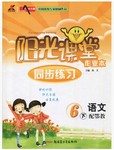题目内容
The worsening of global warming, _____human activities are to blame, has led to frequently extreme weather.
| A.by which | B.for which | C.that | D.what |
B
解析

 阳光课堂同步练习系列答案
阳光课堂同步练习系列答案I live in Albuquerque and I used to give much money to the homeless around, feeling sorry for their misfortune. But later I became a single mom with no home, a huge ---36--- and hardly any income. ---37---, I stopped giving and became very bitter.
Several years later, things started to ---38---. I became ---39--- enough to have a home, and ---40--- a backyard, and I started to pull myself out of debt. One day we saw a homeless person with the ---41---, “ Will work for food. ” I ---42---. My daughter asked why I no longer helped the people in ---43---. I replied, “ Honey, they just use that money for ---44--- or other bad things. ” She didn’t respond. But when I said that, it didn’t feel right.
Three days later, I was ---45--- to pick up my daughter from school. A man was standing on the corner and something deep inside ---46--- me to help him. So I stopped my car , and he ran over with enthusiasm. He said, “ God bless you, I only need 77 cents. ” I ---47--- into my ashtray and ---48--- enough, there sat three quarters and two pennies.
Greatly shocked by this ---49---, I gave him all the money in the ashtray. He ---50--- with joy and tears in his eyes, “ You just made it ---51--- for me to see my mom for Christmas ! The bus offering this great sale is ---52--- right away ! ” It was a moment I’ll never forget. I think that man won’t forget it either, but I was the one who got the best ---53--- in life_____giving. It also ---54--- me that nothing is a coincidence, ---55--- everything has meaning.
|
1. |
A. |
debt |
B. |
duty |
C. |
shadow |
D. |
pressure |
|
2. |
A. |
In fact |
B. |
In a word |
C. |
As a result |
D. |
All in all |
|
3. |
A. |
develop |
B. |
worsen |
C. |
vary |
D. |
change |
|
4. |
A. |
fortunate |
B. |
wealthy |
C. |
generous |
D. |
successful |
|
5. |
A. |
even |
B. |
still |
C. |
yet |
D. |
only |
|
6. |
A. |
decoration |
B. |
expression |
C. |
sign |
D. |
announcement |
|
7. |
A. |
got by |
B. |
pulled out |
C. |
passed on |
D. |
passed by |
|
8. |
A. |
emergency |
B. |
danger |
C. |
need |
D. |
panic |
|
9. |
A. |
food |
B. |
alcohol |
C. |
medicine |
D. |
entertainment |
|
10. |
A. |
driving |
B. |
jogging |
C. |
wandering |
D. |
cycling |
|
11. |
A. |
directed |
B. |
challenged |
C. |
permitted |
D. |
drove |
|
12. |
A. |
reached |
B. |
turned |
C. |
broke |
D. |
searched |
|
13. |
A. |
amusingly |
B. |
strangely |
C. |
awkwardly |
D. |
naturally |
|
14. |
A. |
incident |
B. |
condition |
C. |
state |
D. |
coincidence |
|
15. |
A. |
poured out |
B. |
turned out |
C. |
broke out |
D. |
burst out |
|
16. |
A. |
necessary |
B. |
difficult |
C. |
possible |
D. |
suitable |
|
17. |
A. |
queuing |
B. |
leaving |
C. |
setting |
D. |
operating |
|
18. |
A. |
gift |
B. |
time |
C. |
favor |
D. |
honor |
|
19. |
A. |
impresses |
B. |
informs |
C. |
persuades |
D. |
reminds |
|
20. |
A. |
or |
B. |
and |
C. |
so |
D. |
however |